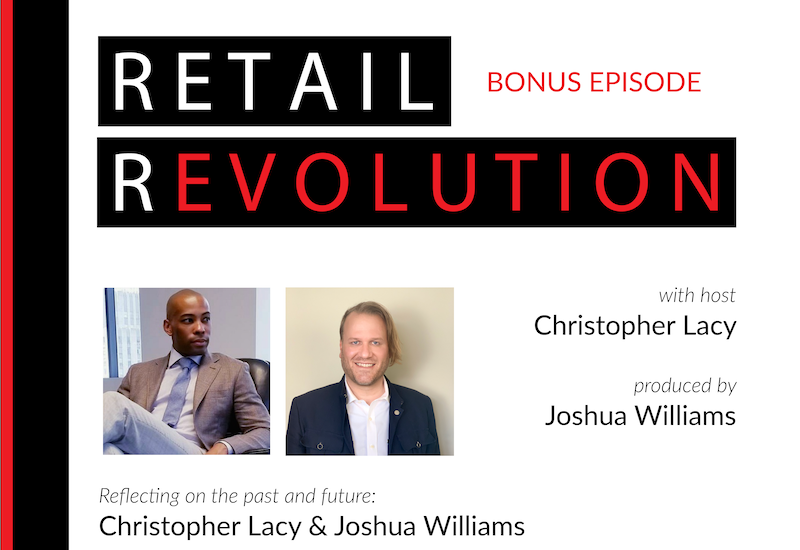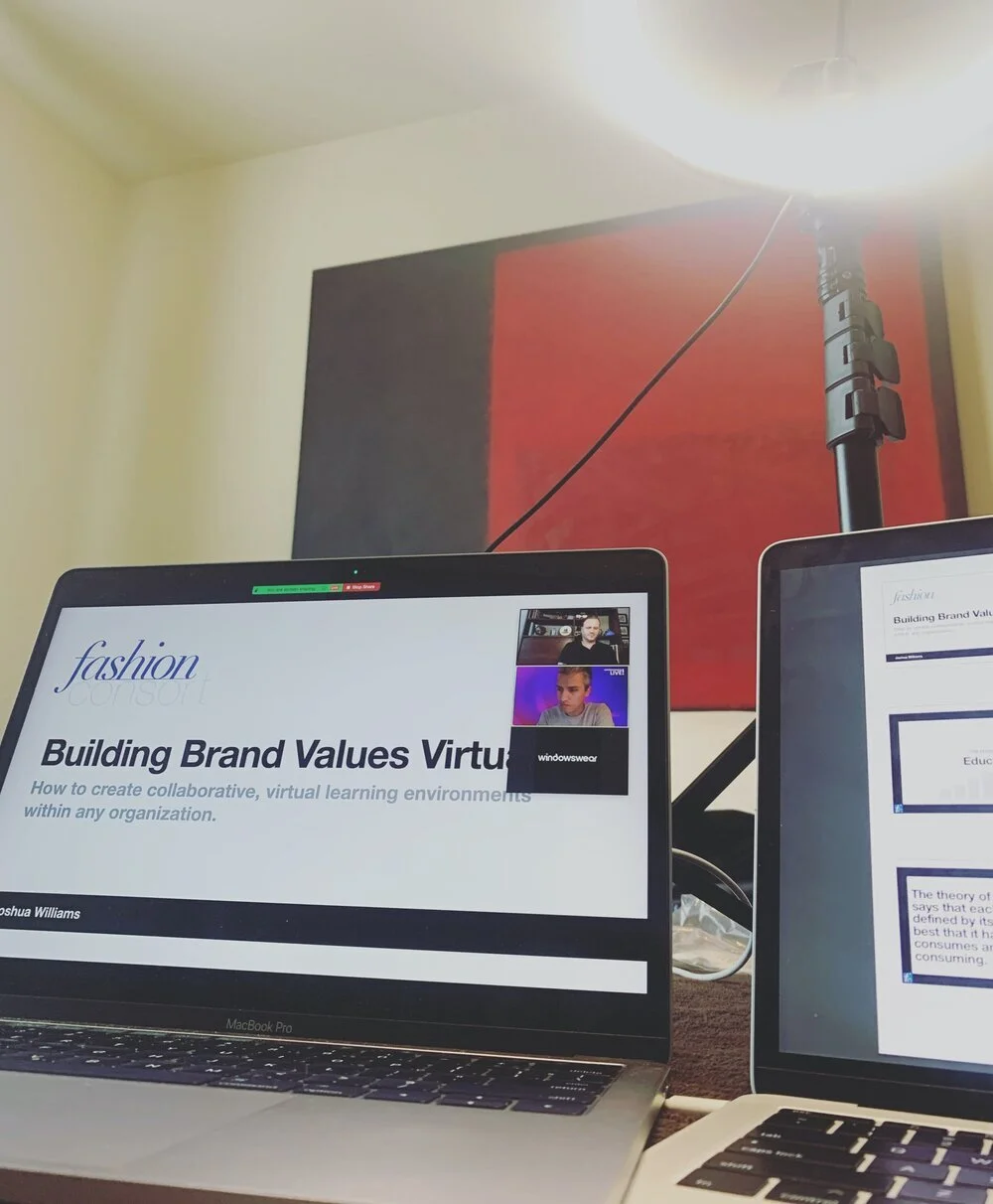
Market Insights
Christopher Lacy shares his expertise on retail operations as it relates to the uptick in shoplifting, including how organizations plan for loss versus perception.
Joshua Williams provides an overview on the financial viability of businesses post-pandemic and in context of NYFW Fall 2023.
Joshua Williams shares insights on artificial intelligence (AI) and it’s integration into the fashion system, including trend intelligence, design enhancement and more.
Joshua Williams shares his insight on New York Fashion Week Spring 2022, focusing on post-covid happenings and trends.
Founder Joshua Williams discusses the complexity of sustainability as it relates to the fashion industry and how it has become an industry buzzword.
Joshua Williams discusses the history of fashion week in New York City and shifts in strategies brands have taken due to Covid-19. CGTN.
Founder and President, Joshua Williams, was recently featured on CGTN America in an interview that considered the impact of Covid-19 on the fashion industry and how retailers are shifting.
Founder, Joshua Williams, appears on i24 TV to discuss the recent H&M store closings (over 5% of total brick and mortar stores), as well as the growing interest in fashion resale.
Founder, Joshua Williams discusses the major shift to online for most fashion designers due to Covid-19.
A full transcript of a special bonus episode for Retail Revolution. Host, Christopher Lacy discusses fashion retail with Joshua Williams and key insights gained from the second season of the podcast.
The Retail Revolution podcast season finale hit all streaming platforms on Tuesday, August 4th. This episode features internationally renowned photographer, philanthropist and entrepreneur, Nigel Barker on a range of topics ranging from brand authenticity, social media strategy and mixing a cocktail!
In this time of social unrest, corporations must create new channels of communication to authentically engage in conversations with employees and customers. Podcasts offer an intimate, conversational format wherein ideas can be shared, and values can be transmitted. Fashion Consort can help companies develop podcast strategies and content.
As the host of a podcast called Transition of Style, a queer-focused podcast that discusses the intersection between gender identity and personal style, I rely on connecting with my guests one-on-one, so that we can engage in an authentic, heartfelt exchange. My goal is to create a space where they feel comfortable and at ease, where they can share intimate details and sometimes very painful experiences, all while knowing they’ll be supported and not judged in any way.
In this special episode of Fashion Consort News Bytes, founder Joshua Williams shares his thoughts on the current issues of racial injustice and how they effect the fashion industry. This episode includes the Retail Revolution episode “Fashion & Racism” with Sabrina Lynch.
In May 2020, Joshua Williams shared his insights on brand building in special livestream event in partnership with WindowsWear. This is the transcript.
What really is education and how can we think about that in terms of brand values, beyond just going to college: taking a class, reading a book, and so on. Really, at the core of education is sort of ongoing personal development and learning things or sort of expanding our knowledge base so that we have the tools that we need to, to make better decisions, to know how to interact. And obviously in this kind of time of crisis, this is come to the forefront. in addition, I think that education from my perspective as a professor is not just about what you learn or it's about how you learn and who you learn with.
In our quest of understanding more about teaching during lockdown and how different educational institutions and their teachers transitioned to online learning we stumbled upon Parsons School of Design, New York. And so we wondered. How does a prestigious design institution handle online learning?
Luckily, Joshua Williams, Assistant Professor Of Fashion Management was kind enough to give us some very insightful information.
The more competitive and saturated the fashion marketplace becomes, the more important it is for brands to be authentic in how they engage with customers. Brand authenticity must be considered from a 360 degree perspective, including the physical (products, store experience) and the digital (web store, social media), always ensuring customer needs are being met. These needs are both functional (access to product, product’s utility) and emotional (sense of community, customer service), and goes beyond group identification through logos and icons. In short, it requires brands to consider the whole brand experience from the customer’s perspective.
Why do major historic moments change how we dress?
“Historic moments are integrally linked to sartorial response,” McElvain says. “For example, during WWII, women were used to wearing shorter A-line skirts due to austerity measures and available materials. After Christian Dior introduced huge pleated skirts in 1947, women were ready to indulge.”
You can go back even further, according to Joshua Williams, assistant professor of fashion management at the Parsons School of Design. “Specifically, [think] of fashion post-French Revolution,” Williams says. “During the Reign of Terror, children of the aristocrats used fashion as a way to create community and provoke society to bring attention to their lost families and fortunes. They would often wear transparent clothes in public, as well as exaggerated styles such as outrageous hats. They were known as “‘Les Incroyables et Les Merveilleuses.’”
Ultimately, this exaggerated style led to “a simplification of fashion,” according to Williams. “That was more the rage during Napoleon’s reign,” he says. “For example, [there was] the empire waist that was much more comfortable to wear, especially for women, than the layered, extravagant styles pre-war. I see parallels with this move toward comfort and ease of movement happening now.”
Externally, companies are struggling to figure out how to connect with the changing marketplace. Millennials, as well as Gen Z customers, are no longer responding to the traditional “one size fits all” marketing efforts of the past. They want to feel as if they’re connecting with each brand and service they choose, one-on-one. They require more personalization as well a sense of authenticity and transparency when engaging with a brand. What’s more, they seek brands that share their values and offer a sense of community.
Podcasts are an opportunity to connect, engage and energize employees.
Customers are searching for personal identity through fashion brands. They require a connection that is transparent and authentic.
Our founder, Joshua Williams, was recently featured on CGTN, as an expert on global retail.



























Creating podcasts remotely, a helpful guide from Descript, the ultimate online platform for podcast editing. FC Podcasts uses Descript for all post-production of their podcasts, including Fashion Consort News Bytes, Retail Revolution, Broadway ReFocused and Transition of Style.